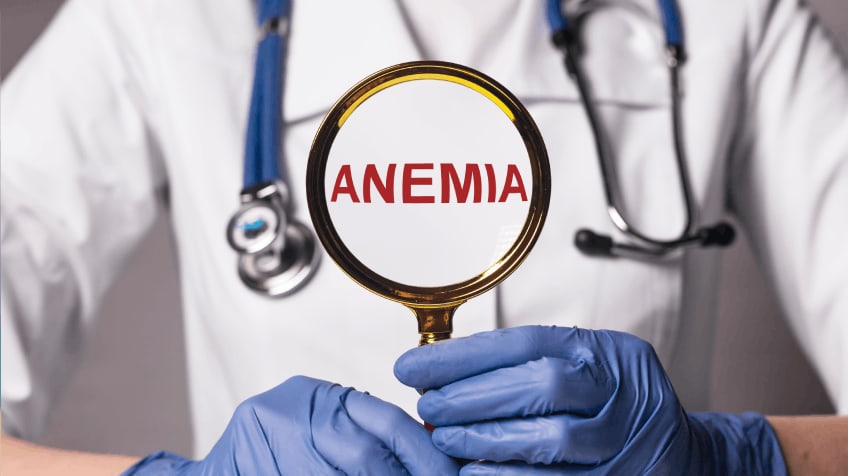Hello everyone, I’m Dr. Sneha Deshpande, Senior Consultant at Momstory by Sahyadri Hospitals.
Today, let’s understand one of the most common health issues among women — Anemia (खून की कमी).
Did you know that nearly 60% of Indian women suffer from anemia? This condition not only affects energy levels but also impacts overall health and pregnancy outcomes.
What Is Anemia?
Anemia occurs when the hemoglobin level in the blood falls below the normal range.
In women, a hemoglobin level below 12 g/dL is considered anemic.
Hemoglobin plays a crucial role — it carries oxygen to every cell and tissue in the body.
When your hemoglobin levels drop, your body’s cells and organs receive less oxygen, leading to fatigue and weakness.
Common Symptoms of Anemia
Here are some signs and symptoms that indicate you may have low hemoglobin:
-
Constant tiredness or fatigue even after minimal work
-
Shortness of breath or difficulty in breathing
-
Palpitations (fast heartbeat)
-
Pale skin or whitish appearance
-
Lack of focus and reduced concentration
-
Frequent infections or illnesses due to a weak immune system
If these symptoms sound familiar, it’s important to get your blood checked for hemoglobin levels.
Causes of Anemia
The causes of anemia can be grouped into three major categories:
1. Decreased Production of Red Blood Cells
This usually happens due to:
-
Iron deficiency
-
Folic acid or Vitamin B12 deficiency
-
Genetic disorders such as Thalassemia, where hemoglobin production remains persistently low
2. Increased Destruction of Red Blood Cells
Conditions like:
-
Sickle cell anemia
-
Splenomegaly (enlarged spleen that destroys red cells faster)
Both lead to faster breakdown of red blood cells and hence, low hemoglobin.
3. Blood Loss
Blood loss can occur due to:
-
Gastric or peptic ulcers
-
Worm infestations (parasitic infections)
-
Piles (hemorrhoids)
-
Heavy menstrual bleeding
Chronic blood loss gradually reduces hemoglobin levels, leading to anemia.
Diagnosis of Anemia
To confirm anemia, your doctor will advise a Complete Blood Count (CBC) test.
If your hemoglobin is below 12 g/dL, further tests may be recommended to find the cause:
-
Iron studies to check iron deficiency
-
HPLC test to rule out Thalassemia
-
Bone marrow biopsy, if red blood cell production is very low
-
Stool examination to detect worm infections or hidden blood loss
Treatment & Prevention of Anemia
Maintaining good hemoglobin levels is vital for your overall health — especially for women in their reproductive years.
1. Dietary Changes
Include iron-rich foods in your daily diet:
-
Green leafy vegetables (spinach, fenugreek)
-
Sprouts
-
Jaggery (gur)
-
Pomegranate
-
Dates and dry fruits
2. Iron Supplements
If your diet alone doesn’t meet the body’s needs, your doctor may prescribe:
-
Iron tablets or syrups
-
Injectable iron preparations (for those who cannot tolerate oral iron)
3. Blood Transfusion
In severe cases (hemoglobin below 7 g/dL or during pregnancy), blood transfusion may be required to restore normal hemoglobin levels.
Why It’s Important to Treat Anemia Early
Anemia may seem mild at first but can lead to:
-
Extreme fatigue
-
Reduced immunity
-
Pregnancy complications
-
Poor fetal growth
That’s why early diagnosis and treatment are essential to prevent long-term health problems.
When to See a Doctor
If you experience persistent weakness, pale skin, or breathlessness, consult your gynecologist or physician immediately.
At Momstory by Sahyadri Hospitals, our experts — including Dr. Sneha Deshpande — specialize in diagnosing and treating anemia and related women’s health concerns with care and precision.
Conclusion
Anemia is common but highly preventable and treatable.
A balanced diet, timely medical check-ups, and awareness about symptoms can go a long way in maintaining healthy hemoglobin levels.
For more information or to consult Dr. Sneha Deshpande, visit Momstory by Sahyadri Hospitals, Pune — where women’s health and wellness are always prioritized.




